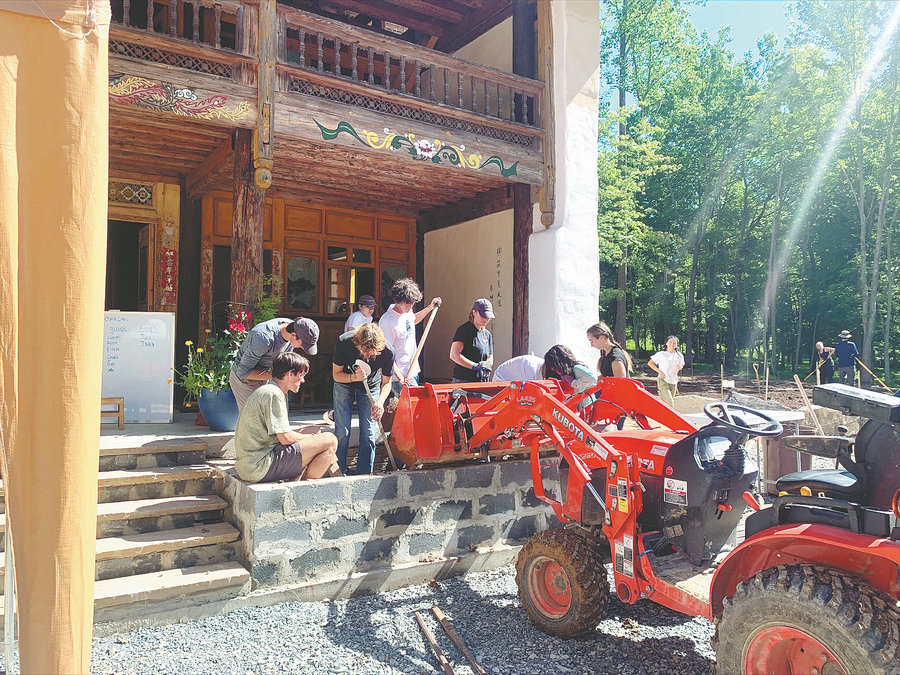

In the early 1990s, in what seemed to be a honeymoon period for people-to-people exchanges between China and the US, both Flower and his wife were able to spend a few years in Sichuan province, which neighbors Yunnan.
Leonard was attached to the Bureau of Animal Husbandry, studying livestock development projects for her doctoral thesis.
She later helped create the China Fieldwork Program in Yunnan for Sidwell Friends School, where she taught landscape ecology.
Their stay in Sichuan and Yunnan provinces cemented their belief that houses could be an important medium for learning.
Between 2014 and 2017, Flower and his students paid a few visits to Zhang, who had agreed to sell the house at a nominal price. He also donated some everyday utensils to Flower.
Zhang said he would be glad if people elsewhere could see his house and the folk ways of the village.
In the summer, the house was dismantled but not before vital measurements and photos were taken, and all structural elements specifically marked.
Martin Fair, an architecture and construction enthusiast who owns a guitar-repair business in Virginia, recalls, "it was fascinating to see the different types of joinery used to build the house. I think the main skill I brought that was useful was bundling parts and stacking them up so they could be relocated without damage".
But never before had any piece of wood, newly logged or used, been shipped to the US out of Cizhong village, let alone whole sections of a house to be rebuilt elsewhere.
In addition to worrying about rain that may lead to muddy roads, Flower and his team had to deal with one problem after another: permits, drivers, customs clearances and shipping costs.
"I feel very grateful to all of the people we worked with. I'm relieved and grateful and tired, but happy," he said as two truckloads of house parts were sent to the Tianjin Port in North China to be shipped to Baltimore.
The house parts arrived in September 2017 and were then transferred to West Virginia.
Not surprisingly, Sidwell Friends School has sponsored experiential education programs at the house's new location.
Leonard, who serves as chief executive officer of the China Folk House Retreat, took charge of fundraising and camp preparations, and after forming a partnership with the Friends Wilderness Center and West Virginia Timber Framers Guild, the CFHR started its inaugural summer program in 2019.
In four weeks, about 25 students cleaned the wood, treated it for insects, and then began the rebuilding, starting with the gate house and its surrounding walls.
One of the walls was made using the traditional rammed earth method, and another was made using a wooden frame covered in "hempcrete" — a mixture of hemp (fiber), lime and clay — a "negative carbon", sustainable building material that was extensively used in Yunnan, according to Flower.